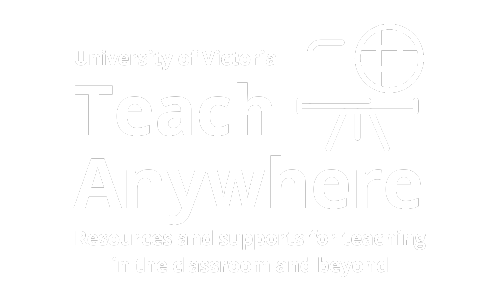Academic integrity is foundational to scholarship within the post-secondary environment. It refers to a standard of commitment and behavior in accordance with the values of honesty, trust, fairness, respect, responsibility, and courage in learning, teaching and research (ICAI, 2014). As such, academic integrity is central to the mission of the university in developing new knowledge and in creating a strong academic environment that strengthens students’ intellectual and moral development. Beginning in first year, students are mentored into integrous processes to recognize and attribute the contributions of others as well as ways to assure the integrity of their own intellectual work.
Therefore, academic integrity is embedded in high-quality learning and teaching practices and informs the effective assessment of student learning. In its most rudimentary form, academic integrity or a sub-component sometimes referred to as assessment security, focuses on limiting or deterring cheating and plagiarism. However, a robust academic integrity strategy employs a broad framework that addresses multiple aspects of academic integrity, upholds standards and is learning focused. At a minimum, an academic integrity strategy should include: clear articulation of the academic integrity policy, student-focused academic integrity information, robust assessment practices in all courses including sufficient invigilation and/or use of a proctoring tool, a remedial education process to address initial transgressions of academic integrity as well as a laddered disciplinary process to address repeated violations.
In this framework, you will find:
- Academic Integrity Policy
- Student-focused Academic Integrity Strategy
- Effective Teaching and Assessment Practices
- Effective Invigilation and Proctoring Strategy
- Education and Remediation Strategy
Download the Framework
You can download this framework in a PDF form for printing and referencing purposes.
Academic Integrity Pledge
Students must abide by UVic academic regulations and observe standards of ‘scholarly integrity,’ (no plagiarism or cheating). Therefore, this online exam must be taken individually and not with a friend, classmate, or group, nor can you access notes, course materials, the internet, or other resources while completing the exam. You are also prohibited from sharing any information about the exam with others. I _____type in name___________ affirm that I will not give or receive any aid on this exam or access any unauthorized resources and that all work will be my own.
Frequently Asked Questions
What should I do if I suspect a violation of academic integrity in my class?
UVic has a policy on Academic Integrity, which you can find in both the undergraduate and the graduate academic calendars. The policy addresses the main types of academic integrity violations, as well as procedures for dealing with these. Please review the policy before acting on any allegation.
Who should I contact if the policy does not address the violations I am experiencing in my classroom, or am unsure whether to approach a student to discuss a violation or possible penalty?
Your chair or director should be your first contact if you are suspecting a violation. An instructor documents a violation, but does not make decisions. It is also important that a violation is treated as an allegation until “a determination is made that compelling information exists to support the allegation …”.
Where can I get guidance on the UVic approach to academic integrity beyond policy regulations?
The Academic Integrity Framework explains how UVic supports a culture of academic integrity.
Are there additional supports to help build a culture of academic integrity in the classroom?
You have the option of adding an academic integrity pledge on your syllabus or directly on the Brightspace setup of assignments. There is also a student-focused Integrity Matters course on Brightspace. Self-enrolment is open to all students. The course is based on scenarios related to the principles of academic integrity and can be taken independently or made into an assignment. UVic also has other resources on academic integrity that are updated regularly.

